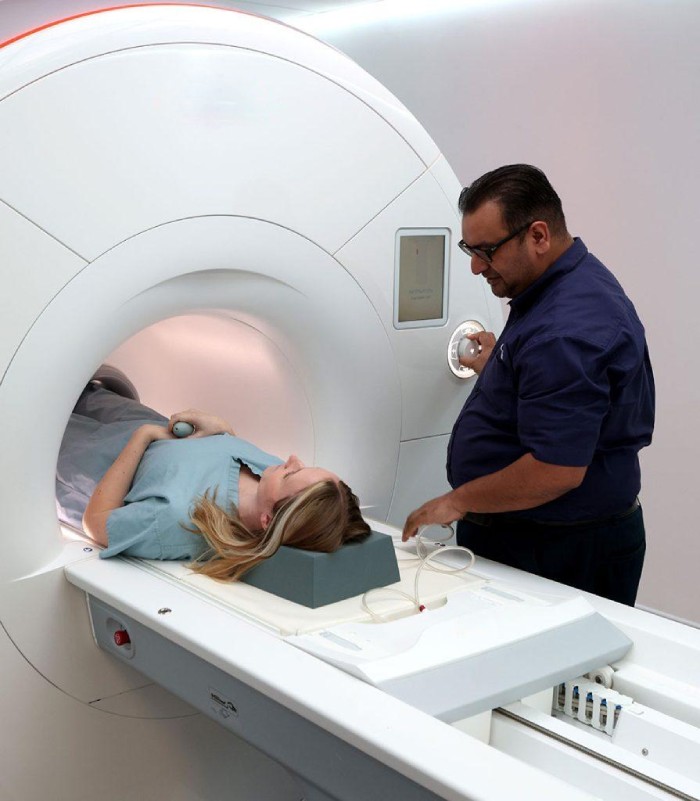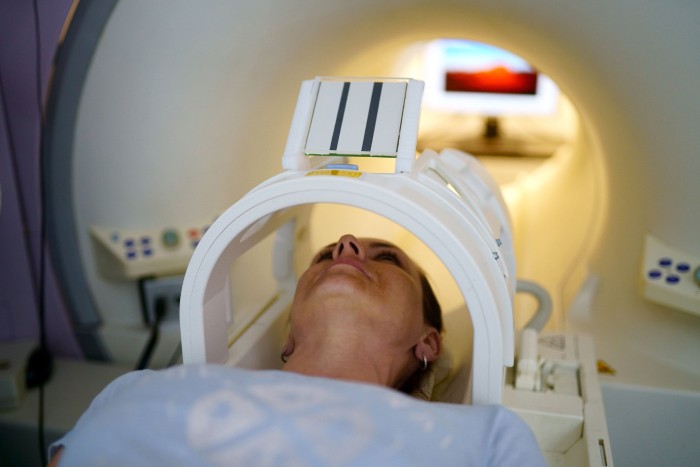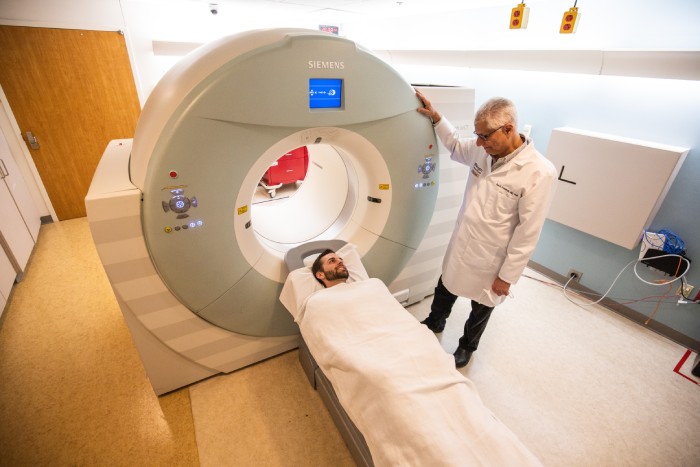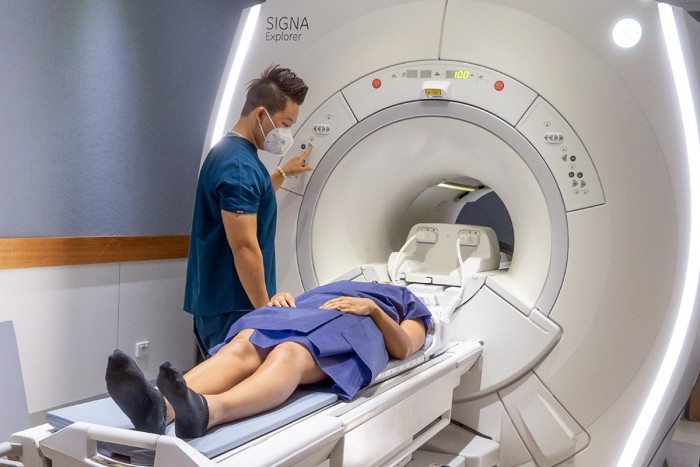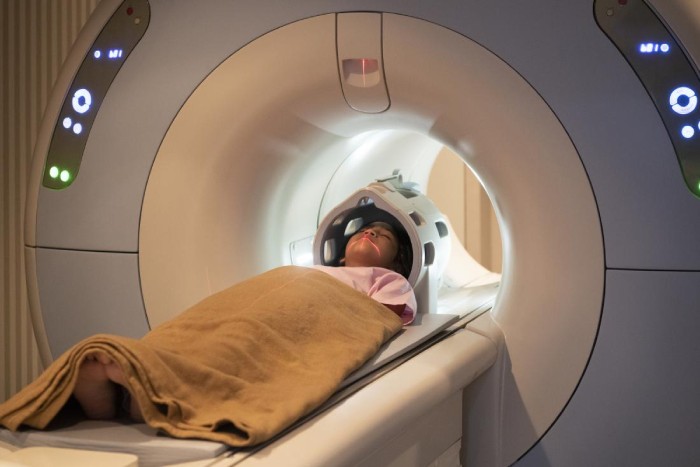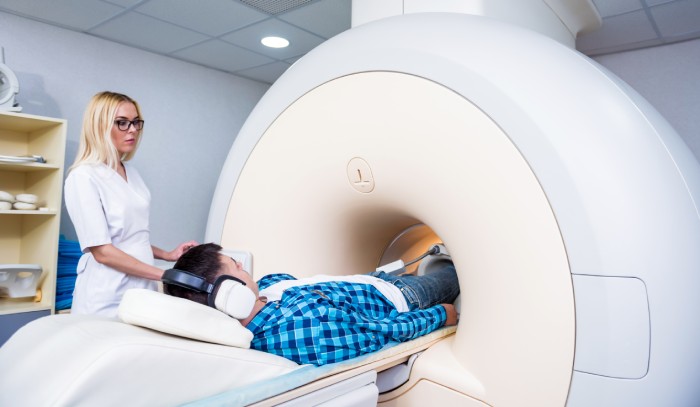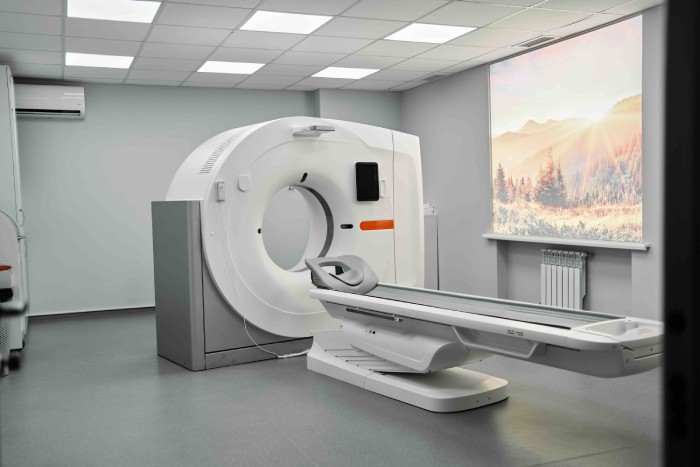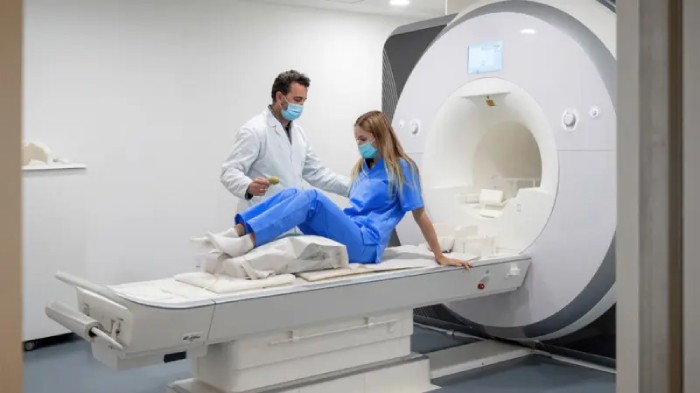MRI Scans
An MRI (Magnetic Resonance Imaging) scan is a medical imaging technique that uses a strong magnetic field and radio waves to generate detailed images of the internal structures of the body. It is a non-invasive and painless procedure that provides valuable diagnostic information to healthcare professionals.
Here are some key points about MRI scans:
Principles of MRI: MRI is based on the principle of nuclear magnetic resonance (NMR). When the body is exposed to a strong magnetic field, the hydrogen atoms in the body’s tissues align with the field. Radio waves are then used to stimulate these aligned hydrogen atoms, causing them to emit signals. These signals are captured by the MRI scanner and processed to create detailed images.
Here’s why MRI scans are helpful:
- Detailed Visualization: MRI scans provide highly detailed images of soft tissues, organs, muscles, bones, and blood vessels. This allows doctors to assess the structure, size, and condition of various body parts.
- Non-Invasive: Unlike some other imaging techniques, such as X-rays or CT scans, MRI scans do not use ionizing radiation. This makes them safer for patients, particularly for repeated or long-term imaging.
- Multi-Planar Imaging: MRI scans can produce images in multiple planes (sagittal, axial, and coronal), allowing doctors to view the body from different angles. This comprehensive view aids in accurate diagnosis and treatment planning.
- Differentiation of Tissues: MRI scans have excellent tissue contrast, which helps distinguish between normal and abnormal tissues. This makes it particularly useful for identifying tumors, inflammation, infections, and other pathological conditions.
- Functional Imaging: Functional MRI (fMRI) is a specialized form of MRI that measures brain activity by detecting changes in blood flow. It is used to map brain functions, identify areas affected by diseases or injuries, and assist in pre-surgical planning for neurosurgery.
- Safe for Most Patients: MRI scans are generally safe for a wide range of patients, including pregnant women (though precautions may be necessary in certain cases). However, people with certain medical implants or devices containing metal may not be suitable for an MRI due to the magnetic field.
- Monitoring Treatment Progress: MRI scans can be used to monitor the effectiveness of certain treatments, such as chemotherapy or radiation therapy, by visualizing changes in tumor size or response to treatment over time.
Preparation:
Prior to an MRI scan, certain preparations may be necessary. These can include removing metal objects (e.g., jewelry, watches), as the strong magnetic field can interfere with or be attracted to metallic items. It’s important to inform the medical staff about any metal implants or devices in the body, as these can also affect the MRI procedure. In some cases, a contrast agent may be administered to enhance the visibility of certain tissues or blood vessels during the scan.
Procedure:
During the MRI scan, the patient lies on a movable table that slides into a large cylindrical scanner. It’s essential to remain still during the scan to avoid blurring the images. The scanner may produce loud knocking or buzzing noises, and ear protection is typically provided. In some cases, patients may receive a sedative if they experience anxiety or claustrophobia during the procedure.
Safety:
MRI is generally considered a safe procedure, but it’s important to follow safety guidelines. The strong magnetic field can be hazardous for individuals with certain implants or devices, such as pacemakers, cochlear implants, or metal fragments in the eyes. Pregnant women are usually advised to avoid MRI scans, especially during the first trimester. The safety considerations will be assessed by the medical staff before proceeding with an MRI scan.
Diagnostic Applications:
- MRI scans can help diagnose a wide range of conditions, including but not limited to:
- Neurological disorders (e.g., tumors, strokes, multiple sclerosis)
- Musculoskeletal injuries (e.g., ligament tears, herniated discs)
- Cardiovascular conditions (e.g., heart abnormalities, vascular malformations)
- Abdominal and pelvic conditions (e.g., tumors, organ diseases)
- Breast abnormalities (e.g., breast cancer, cysts)
It’s important to note that while MRI scans provide valuable diagnostic information, the interpretation of the results is typically done by trained radiologists or medical professionals who specialize in reading and analyzing these images.
Overall, MRI scans provide detailed and accurate diagnostic information, allowing doctors to detect and evaluate a wide range of conditions affecting different parts of the body. This aids in accurate diagnosis, treatment planning, and monitoring of patients, ultimately leading to better healthcare outcomes.
